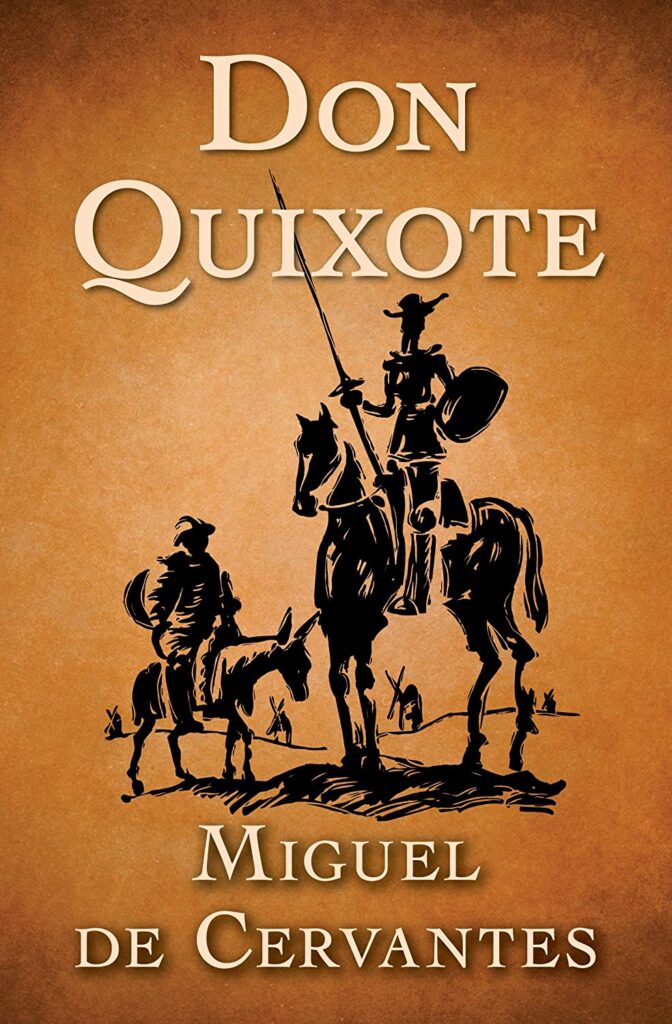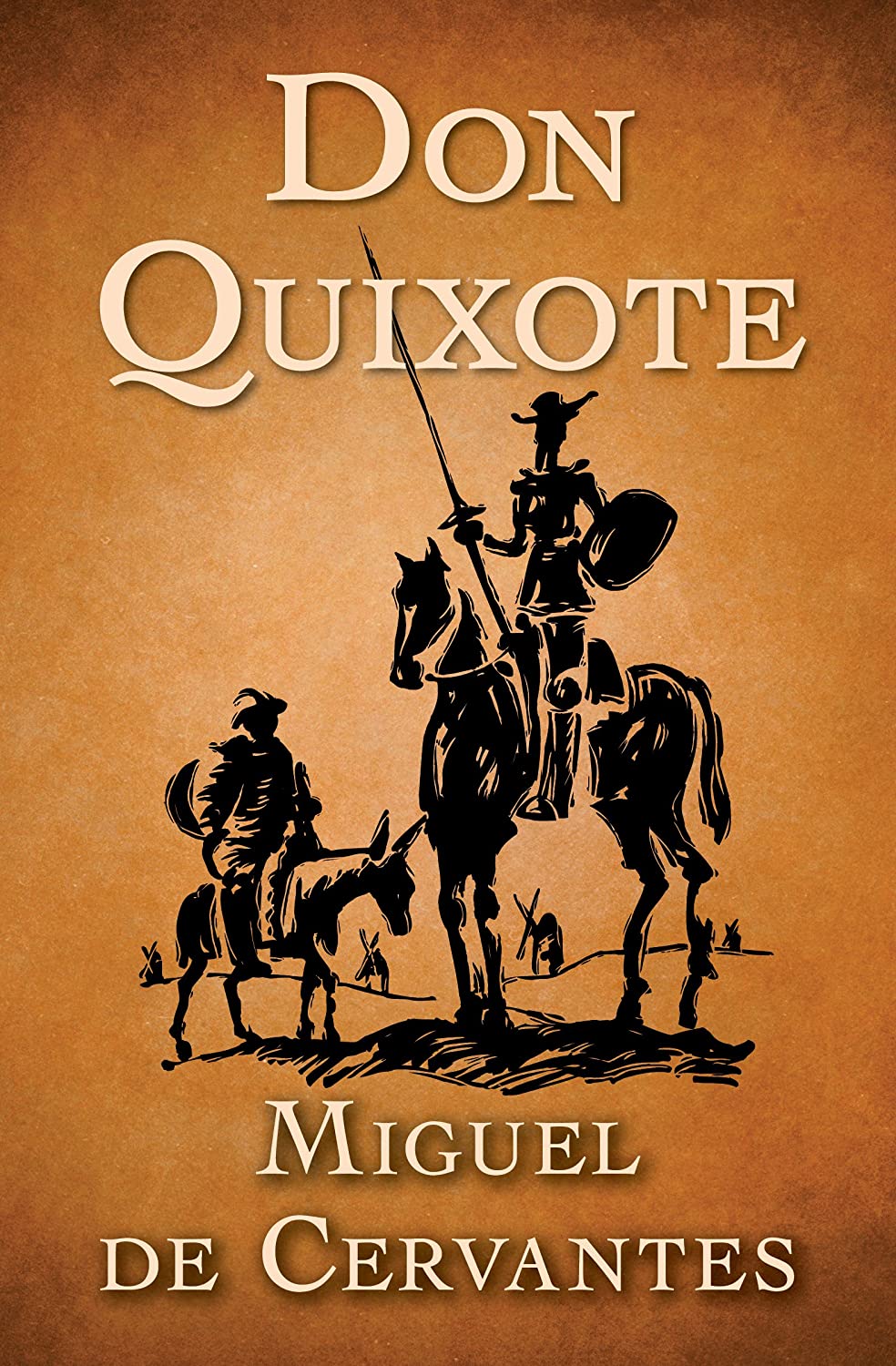
I’ve wanted to read Don Quixote since I first heard about it while living in South America some 5 years ago. At the time, I wanted to read it in Spanish. As it was, I barely understood much of it in English, but at least my vocabulary is significantly larger for the effort! The best way I can describe it is as a form of 16th Century Monty Python and the Holy Grail (I’m something of an avid Python). It contains all the elements of humorous self-reflection, thoughtful criticism, witty humor, and endless ad absurdum.
The story begins where Candide leaves off. At the end of Voltaire’s Candide, the protagonists conclude that “tending one’s garden” or working to subsist in a tranquil and consistent manner is the way to happiness in life. Cervantes story begins essentially with a man living in a respectable rural paradise, tending his garden so to speak, who is taken by the need for adventure!
As Dostoyevsky observed in Notes From the Underground, speaking of mankind in general “give him economic prosperity, such that he should have nothing else to do but sleep, eat cakes and busy himself with the continuation of his species… he would even risk his cakes and would deliberately desire the most fatal rubbish… simply to introduce into all this positive good sense his fatal fantastic element.”
Don Quixote is the story of pursuing the “fatal fantastic element” at the expense of all else.
At the outset of his self imposed quest to right wrongs, Don Quixote’s niece asks him
“.. but what business have you dear uncle with any of these quarrels? would it not be better to live in peace at home than to stray up and down in search of superfine bread without considering that one goes out for wool and comes home quite shorn? My dear niece replied don Quixote, you are altogether out of your reckoning. Before I be shorn I will pull it pluck off the beards of all those who pretend to touch a single hair of my mustachio.”
It’s worth noting that the premise of the question is not unlike the mindful hobbits in the same setting at the beginning of the Lord of The Rings aptly illustrated by a quote from the old gaffers drinking buddy. “Well it’s none of our concern what goes on beyond our borders, keep your nose out of trouble and no trouble will come to you”
From the knight and his squire’s perspective, the results of the adventures can be roughly summed up by this quote from Sancho Panza, the Knights simple “squire”.
“What I can clearly discern from the whole is that these adventures we go into will at the long run bring us into such misadventures that we shall not know our right hands from our left, and therefore, in my small judgment, the best and wholesomest thing we can do is to jog back again to our own habitation now while the harvest is going on to take care of our crops and leave off sauntering from post to pillar… “
For the most part, from the perspective of those he attempts to help, the results can be fairly summed up like this.
“I do not know how you can call this behavior writing wrongs, said the bachelor, I’m sure you’ve changed my right into wrong by breaking my leg. It will never be set to rights again so long as I live. and the grievances you have redressed for me have been to aggrieve me in such manner that I shall never cease to grieve at my misadventure in meeting with you while you were in search of adventures. ‘All things do not equally succeed’, observed the knight.”
And how, might you ask does the knight and his squire go on adventuring despite their constant mishaps?
“Hark ye Sancho! said don de Quixote, by the same oath you swore, I swear again that though hast the most slender understanding of any squire that any squire in this world does or ever did possess. Is it possible that after all thy traveling in my company through art not convinced that everything belonging to knights-errant appears a chimera of folly and distraction, being metamorphosed into the reverse of what it is by the power of a tribe of enchanters who attend us, changing, converting and restoring each particular according to their pleasure and every inclination they have to favor or annoy us, for which reason what seems a barbers basin to thee I can easily discern to be that helmet of Mambrino“
Returning to Voltaire “He who can make you believe absurdities can make you commit atrocities”
At the same time, It’s not exactly the same exercise in absurdity we’re familiar with from The Hitchhikers Guide to The Galaxy. There’s something to be said for the intentions, persistence, and indeed the basic competence with which Quixote tilts at windmills. The story is entertaining, thought-provoking, and somehow inspiring. In the end, despite all of the mishaps, Don Quixote and Sancho Panza end up finding treasure, righting a wrong, saving a life, and enabling a great romance, just not in the way they had intended.
indeed there are lines of truly lucid elaboration
Sancho Panza-
“I know nothing of these philosophies, but this I know, that I wish to God that I had this earldom as soon as I should find understanding to manage it. (I)… would be as much of a king in my own estate as he that wears a head, and so being I would do what I please, and doing what I pleased, I should please myself, and in pleasing myself I should be satisfied, and in being satisfied I should have nothing more to desire, and having nothing more to desire, there would be an end.”
An end to what? to mishap? Certainly. Adventure? Unfortunately. the Story? Most regrettably. Adventure on!
P.S. There is something to be said for the value of old fiction for the sake of history. For example, this year alone I have heard several claims that antebellum slavery was a product of the American Era. Don Quixote was written in 1609, preceding the arrival of the first African slaves in North America by 10 years. “It is not reasonable that they should be treated like negro slaves, to whom, when they are old and incapable of service, their masters often give their freedom, driving them from their houses, and, under the title of liberty leaving them still slaves to hunger, which nothing but death can dispel”. This practice of abandonment was one of Douglass’s chief complaints in his memoir.
